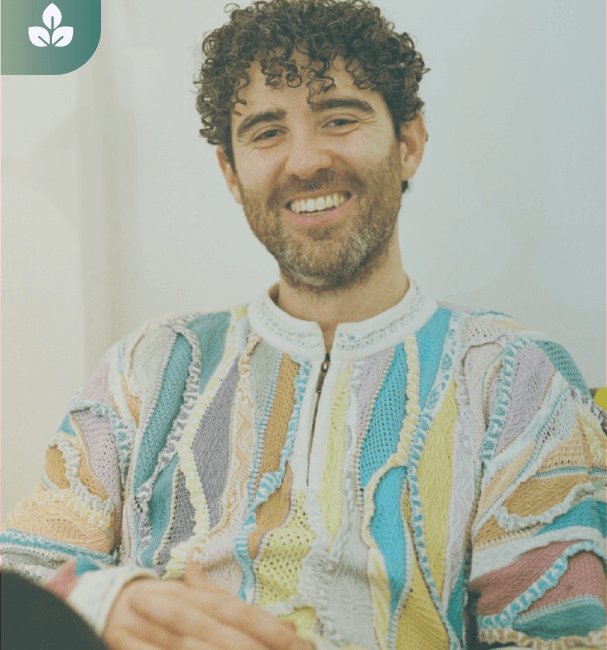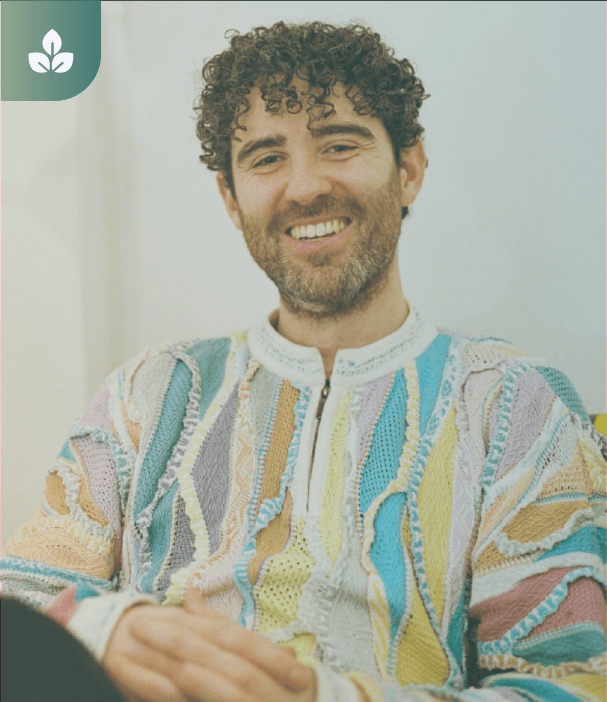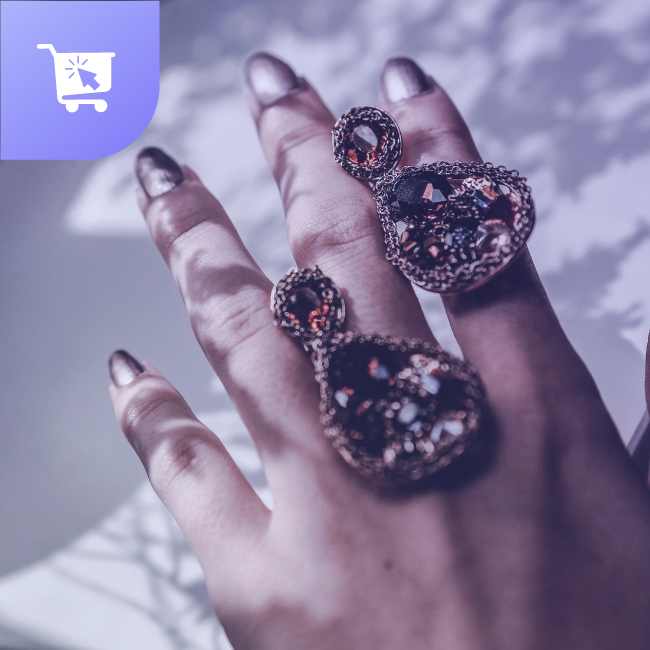
Sustainability in Stitches: Journey of Thriftify
About this Podcast:
Introducing Rónán Ó Dálaigh, the visionary Founder and CEO of Thriftify, an innovative online resale platform hailing from Ireland. His fervent commitment to driving transformative change has deep roots, stemming from his early days as a youth social entrepreneur, where he made his voice heard at the UNESCO Youth Forum.
Today, Rónán channels his passion into revolutionizing the fashion industry. Through Thriftify, he empowers numerous top resale and charity retailers with cutting-edge digital commerce technology, positioning them at the forefront of the sustainable fashion movement.
Whether you call it pre-owned, pre-loved, second hand, or second life, his mission remains the same: to steer us away from fast fashion and towards a more sustainable future.
Episode Transcript:
Hello. We're back with an all new episode of the retail podcast by Vue.ai. If you're new here. The retail podcast features trailblazers who are changing the retail sphere. We've got tech savants, passionate entrepreneurs, leaders at legacy conglomerates, and many such fabulous personas lending their voices to give you a view into the world of retail today. This podcast is one you just don't want to miss. Our guest today is a social entrepreneur and activist, Rónán. His passion to bring about large scale systemic change goes way back to his days as a youth social entrepreneur who lent his voice at the Unesco Youth Forum. And today he is the Founder and CEO of Thriftify, an online resale platform based out of Ireland with thrift. He provides powerful digital commerce tech to enable dozens of leading resale and charity retailers to be the leaders of the sustainable Fashion revolution. Hi, Rónán. It was absolutely lovely hosting you at Revel. And now we've gotten the chance to sit you down again for this chat. Thank you so much for joining us today.
Rónán Ó Dálaigh:Thanks for having me.
Krithika Anand:Great. Shall we get started then?
Rónán Ó Dálaigh:Let's do it.
Krithika Anand:So pre-owned pre-loved resale, second hand, Second life. It's called by so many names today, but the idea at the core is to step away from fast fashion and do your part in leading the sustainable fashion revolution. Right. So why don't you tell us a little bit about the journey that led to starting Thriftify?
Rónán Ó Dálaigh:Sure. Well, I think there's a couple of things that are really important from our perspective. And I think the first is what's happening with the climate. So, you know, we've had news recently that there's danger of the Gulf Stream shutting off for the first time in 12,500 years, which would be catastrophic to weather patterns that billions of people rely on. And we're already seeing catastrophic events all over the world that are directly caused by climate change. And I think that really informs what we do at Thriftify and the need for a rapid and fundamental shift in how people consume fashion. So the idea for Thriftify is actually rooted in how can we build an economy that does things quite differently and those things based on circularity instead of the linear model where we mainly use oil to make plastic fabrics like polyester, and then 60% of of all new garments are disposed of within the first year of consumption. So we're kind of at the moment we're making things just to destroy them. And it's nonsensical and it really has to change if we want to have a sustainable future. And the solution that we've identified is to help those organizations who receive post-consumer textiles, to digitize and to sell those garments on multiple different online platforms.
Rónán Ó Dálaigh:So there's a very niche subset of industry, which we call charity retail, but is referred to by different names and different markets. In America, it's called thrift stores and so on. So these are kind of legacy organizations that have been set up in the 1950s and 60s, sometimes in the 40s to help clothe people who couldn't access clothing. And what they've inherited now is the vast majority of post-consumer textiles. So in Britain and in Ireland, where our biggest operation is, our customers are receiving billions of garments every year and they're selling those garments through physical retail stores. And what we're saying is the demand is there among the consumer for used garments and actually the need for a shift in the accessibility and the economics in terms of the fashion industry is also really fundamentally required. And how can we help you to achieve that and be the leaders of that using digital technology. So we build digital technology that helps them scale and really move from legacy industries that really haven't had a lot of technical or digital sophistication into some of the most digitally sophisticated organizations out there, leveraging the best in class technology to become the leaders of a new economic model for how people consume fashion.
Krithika Anand:Well, that's great. And these are some interesting points, Rónán. You know, I think secondhand shopping and thrifting have become increasingly popular as people look for ways to reduce their personal contribution to fashion related waste. But what's interesting is that with Thriftify, you just don't find fashion related products, but you also find books. Media, bric-a-brac. Why don't you tell us a little bit about that? Because I find it really interesting.
Rónán Ó Dálaigh:Yeah. Well, the funny thing is that, you know, when we look at the used goods economy, fashion is a really big part of it, but it goes down into so many other categories. So furniture, for example, is a huge issue in terms of, you know, when people are moving house or people get rid of furniture, there's a lot of very high quality furniture which is just being dumped and disposed of. And again, a lot of those furniture products are made up of plastics or unsustainable materials which are just going into landfill. So the whole spectrum really of products is being donated to the to these kind of to our customers. And we're talking about everything you can imagine from jewelry, electronics, homework, kidswear, furniture, you name it. These organizations are receiving it and receiving a really vast array of categories. Fashion is by far the biggest, but it's by no means limited to fashion. And yeah, that presents a real challenge because firstly, and particularly with fashion, it's a similar challenge. Understanding the value of something is very, very difficult, particularly if you're if your organization is receiving hundreds of millions of unique products every year, you know, to build a level of expertise that would be required or even the manpower required to price everything individually is just not possible. So that's one of the problems that our technology helps to solve is, is to help with that valuation and pricing piece.
Krithika Anand:Wow, that's incredible. And I think especially in today's social, political and literal climate, it's absolutely crucial that all retailers look at a more cyclical approach to their business, and yours definitely helps them achieve that. We're curious to understand how does Thriftify work in helping businesses and individuals take a more sustainable route?
Rónán Ó Dálaigh:Yeah, absolutely. Well, I think the key message that we have is that a sustainable and a different economic future is not one in which purely the production of goods is circular or the consumption of goods is circular. But we really believe that the financial model and incentive should be circular as well. So there's a kind of a myth at the moment, and it worries me because I don't think a lot of people are actually serious about taking the change or making the leaps that are required to build what we need to overcome the climate crisis, which is a new economic model. We just we cannot keep going with a growth-based mindset and expect that this can help to deliver continuously. I mean, it's just ridiculous. It's how cancers operate is growth for growth's sake. And and right now, our economic model is cancerous. So we believe in a future where not only is the consumption and the consumption of goods and the production of goods circular in terms of how they're accessed and reused, but actually the organisations receiving the benefit from that should be using that money and profit circularly. So in our model almost exclusively, our customers are not for profits and what they're doing with the money that we're helping them to generate is, is investing in a wide remit of social benefit and social good. And a lot of these organisations are going to need substantially increased funding to address the challenges that we're already seeing from climate change. So that's kind of the model that we talk about is not just changing how people shop, but also changing why people shop and making cause and impact the core shopping journey as opposed to purely price and convenience.
Krithika Anand:That's absolutely amazing. Being one of the biggest resale platforms of charity shops, as you commonly refer to it in Ireland and with plans of expansion into the UK. Scaling at this pace must come with a great challenge. What are they and how are you tackling them?
Rónán Ó Dálaigh:Yeah, definitely. There's always a lot of challenges. I mean, we launched in Britain about a year and a half ago. So the operation in Britain now is actually quite large and soon it'll be larger than the operation in Ireland, substantially larger. And, and yeah, there's a lot of challenges, I think. You know, as a startup and in the early stages, funding and financing is always the biggest challenge, and particularly in an Irish context where maybe venture capital funding isn't as prevalent as it would be in the States or even in London. And and then, you know, even in a British context or a European context, there's there's more funding available to to startups in the US than there would be, um, in Europe. And there's also more of an understanding, I think there that startups need cash to learn and they don't necessarily need cash to grow. And sometimes startups and a lot of times they get it wrong. But that doesn't necessarily mean that they're not a good startup. And I think what we have definitely had to do a job on is convincing our investors that we're building a solution that's going to disrupt an entire industry, and that's going to take us time to achieve product market fit. And you need to stick with us. And now, thankfully, they've really seen the vision and they've seen the progress and we have managed to achieve product market fit. And really what the challenge now is, is, is building is building in scale. So, um, but that's a really exciting challenge. You know, it feels more like a day job than than it used to running a startup. It feels much more we're definitely now a scale up, which is much more exciting and much more fun because there's less stress, there's less pressure, and it's much more about implementation of process and across the entire organization. So that's by far the biggest challenge. It's not a small challenge or it's not easier, but it's different. And I think I find it more enjoyable.
Krithika Anand:Brilliant. Any successful e-commerce website must contain a well-tagged and attributed catalogue to ensure a seamless shopping experience. Right. And to also help a user to find what they are looking for effortlessly with a moving inventory that has items that are in singular units. In most cases with you, we can imagine that this can be quite the task. How are you using technology and AI in specific to do this at scale?
Rónán Ó Dálaigh:Yeah, it's an absolutely enormous challenge. And you think of, you know, our organizations, we have single customers who are receiving hundreds of millions of garments a year. And how do they not only understand what items they're getting, but then decide which ones to sell online and then when they've decided which ones to sell online, how do they attribute and list those effectively? And you can imagine the level of work that's involved. So really what we decided to do was to try and be at the cutting edge in terms of building innovation and scalability into this. And we looked did an international search really, and also examined the potential of building our own machine-learning algorithm to help with this. But I think what we've realized is that, you know, the importance of data in this market and in solving these solutions is absolutely critical. And unless you have a very, very strong and robust data set, it's going to be very hard to build a machine learning algorithm to optimize or do anything for you. And I think what we've really benefited from Vue.ai is the technology that Vue.ai provides and also based on its substantial data set. So we're able to now leverage Vue.ai, artificial intelligence to do all of the attribution for those garments in multiple languages and across multiple channels.
Rónán Ó Dálaigh:And that really facilitates then not only our customers, um, understanding what they have in terms of the throughput of garments and listing them for sale online. But what we're also now starting to do is help them to predict because you're never going to scan 100 million garments, right? You know, they're not going to photograph 100 million garments a year. But if they scan or photograph a percentage of that, what we can start to do is work with them to understand, um, using that data to extrapolate what the rest of the donations look like. And that becomes very, very powerful because now we're able to start commercializing all of the volume much more effectively. We're able to start advising on what kind of fabrics, categories and all kinds of different subsets or attributes we should be optimizing for across their supply chain. And that's a very, very powerful piece of work because it enables us to start building solutions which were otherwise completely inaccessible to this industry, and we're only scratching the surface with that. So it's a really, really exciting time for that kind of the implementation of that technological innovation. And I think what we're going to see over the next year or two is exponential disruption in the fashion space based on technology such as Vue.ai's Machine learning algorithms.
Krithika Anand:Right. That's amazing to hear, Rónán And I think it's safe to say that I'm still in awe of the abundance of capabilities and use cases that AI can power.
Rónán Ó Dálaigh:Yeah, it's incredible. And I think it's really exciting. It's also, you know, it's going to make everything faster and going to make everything more efficient. So that's positive and negative because it will make this information more, more, more effective. It will make challenges to democratic functions potentially more challenging. It will make marketing better. And it's also having major innovations across medicine and all kinds of innovations. But I think it's quite important that legislators catch up and make sure that from a legislative perspective, we're really making sure we don't fall into the same trap that we fallen into with some of the damages that the major social media companies have implemented across mental health and self-harm among particularly young people and particularly in the States. So yeah, it's an incredibly exciting time and I think it's only going to keep going in one direction in terms of the exponential applications and benefits of what this technology can deliver. And I think what we're really excited by is the potential applications in a way that can really transform the fashion industry for the better.
Krithika Anand:Wow, that's incredible. Thank you for sharing these points with us. And we're definitely looking forward to seeing the future of this collaboration. So tell us this. What's next on the cards for Thriftify? Where do you see yourself investing in tech in the future?
Rónán Ó Dálaigh:Yeah, well, we're doing a lot. I mean, I think so what our technology does at the moment is it helps our users to, um, price do attribution and then do omnichannel listing as well as the fulfillment and merchandising. So there's quite a lot that the technology is doing at the moment. And, and I think one of the exciting things well, there's a couple of exciting things. I think firstly, the, the possibilities of Dynamic Channel listing I'm quite interested in. So, you know, listing things differently on different marketplaces depending on how people engage with those marketplaces. So for example, on Depop, you might list something with emojis and a more engaging or useful description than you will on eBay. And that's something I'm quite interested in how we solve that. I think one of I think one of the biggest challenges, though, and this is something that, you know, is going to take a lot of innovation. I know there's a lot of people working on this challenge, but particularly for marketplaces and because we also have our own marketplace direct to consumer marketplace. When you have a marketplace with hundreds of thousands of unique garments, how do you optimize for the shopper? And I think that's a really important challenge to solve because. If we want to compete with the fast fashion industry, they already know exactly what kind of garments to sell to their particular demographics of customers. And I think what's important for us in the pre-love industry is to say is to start building innovations that give customers on the first time they come to that landing page or as soon as possible that optimize for their size, optimize for their preferences, optimize for their patterns, colors, price points and do all of that optimization in a way that really benefits the customer from the immediate first, the immediate first hit on a product page or a category page.
Rónán Ó Dálaigh:So that's a real challenge, but one that I don't think is impossible to solve. Um, and one that I think if we can solve actually, you know, we start to, we start to win on, on multiple levels, um, in terms of the experience that our shoppers have versus what they have on a, on a on a new fashion retailer's website. So that's definitely one of the big pieces that we want to work on. We're also then working on quite a lot, quite a lot of other innovations across, um, particularly, you know, our interest in, in the volume side of the game and helping our organizations and customers to start getting a lot more efficient in how they commercialize their volume instead of just selling it, by the way. So there's a lot of work we need to do on that and there's a lot of work we want to do on the customer facing side of things as well. So, you know, we don't yet have our own customer facing app that's under development and I think there's space in the market for something very innovative there as well. So yeah, we have a lot of competing interests, shall I say, and planning our product roadmap is always a fun and lively debate amongst the team.
Krithika Anand:Mhm. That's lovely Rónán and it was incredible to hear all of these and we wish you the best in this journey and I believe we've reached the end of this podcast. Rónán thank you so much for taking the time to speak with us today. Any final remarks or thoughts you'd like to leave our audience with today?
Rónán Ó Dálaigh:Yeah, no, just to say thanks very much for the time. And I think it's I think, you know, what I'd love to do is invite people to reach out to us and to visit us at Thriftify.com and also to reach out to me on LinkedIn, which would be great. I'm really interested in hearing how other people have maybe solved or embraced some of the same challenges that we're looking to embrace and any possible collaborations.
Krithika Anand:Amazing. So we'll be back with more episodes of the retail podcast by Vue.ai. Don't miss out on this immersive journey through the future of retail. Find the retail podcast by Vue.ai on our website or wherever you listen to your podcast and stay on top of the game. Until next time, I'm your host Krithika Anand. Bye.
Meet your speakers:

Rónán Ó Dálaigh
Founder & CEO, Thriftify

Krithika Anand
Customer Marketing, Vue.ai





